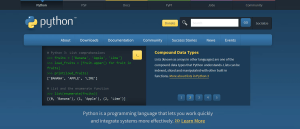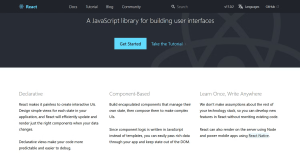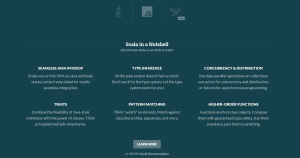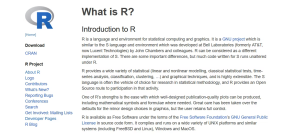6 Best Programming Languages for AI Development In the realm of technology, programming languages are the backbone of innovation and functionality. They enable developers to create everything from simple web applications to complex artificial intelligence (AI) systems. When it comes to AI development, the choice of programming language plays a crucial role in shaping the
6 Best Programming Languages for AI Development
In the realm of technology, programming languages are the backbone of innovation and functionality. They enable developers to create everything from simple web applications to complex artificial intelligence (AI) systems. When it comes to AI development, the choice of programming language plays a crucial role in shaping the success and efficiency of your projects. In this article, we will explore the six best programming languages that are at the forefront of AI development, each with its unique strengths and advantages.
1. Python: The Powerhouse of AI
Python has rightfully earned its reputation as the go-to programming language for AI developers. Its exceptional user-friendliness makes it an ideal choice, even for those new to programming. Beyond its ease of use, Python’s versatility extends to high-performance computing, making it suitable for a wide range of AI tasks and platforms.

Image by https://www.makeuseof.com/
The key strength of Python lies in its ability to simplify complex AI development, ultimately saving developers time, money, and their sanity. This user-friendly approach enables AI enthusiasts to dive into the field without feeling overwhelmed.
Python’s rich ecosystem of libraries and strong community support is another compelling reason for its dominance in AI. Libraries like NumPy and SciPy provide essential tools for scientific computing and machine learning, empowering developers to harness the full potential of AI.
2. Java: The Universal Language
Java is a versatile and compelling choice for AI developers due to its flexibility, ease of use, and robust support. While it might not be the fastest programming language, Java’s compatibility across various platforms is a standout feature. This compatibility eliminates the need for constant code rewriting when transitioning between different systems, a significant advantage in AI development.

Image by https://www.makeuseof.com/
Java’s proficiency in producing high-quality visuals makes it particularly attractive for AI graphics. This capability ensures that AI applications built with Java deliver visually appealing results.
While Java may require more coding effort compared to Python, the impressive outcomes it delivers in AI development establish it as one of the top choices in the field.
3. JavaScript: Empowering Interactivity
JavaScript, commonly associated with dynamic and secure websites, also plays a vital role in AI development. JavaScript appeals to programmers who value coding flexibility, as it excels in creating interactive web applications. Its AI capabilities revolve around providing seamless interactivity, seamlessly complementing CSS and HTML.

Image by https://www.makeuseof.com/
Whether managing front-end or back-end functions, JavaScript offers a wide array of possibilities. From handling buttons and multimedia to data storage, it empowers developers to create interactive AI-powered web applications.
JavaScript enjoys substantial support from programmers and vibrant communities. The availability of libraries like React.js, jQuery, and Underscore.js opens up exciting avenues for AI development, making JavaScript a versatile language in the field.
4. Scala: Enhancing Java’s Legacy
Scala takes the Java Virtual Machine (JVM) environment and refines it for intelligent software development. This compatibility with Java and JavaScript simplifies the coding process, resulting in faster and more productive AI development.

Image by https://www.makeuseof.com/
Scala boasts powerful features, including high-performing functions, flexible interfaces, pattern matching, and browser tools. These features make it an excellent choice for AI development, providing the necessary tools to create intelligent software efficiently.
An additional advantage of Scala is the Scaladex, an index that houses a wealth of Scala libraries and resources. This resource-rich ecosystem further supports AI developers in their endeavors.
5. Lisp: The Pioneering AI Language
Lisp, one of the oldest programming languages for AI development, continues to be a valuable tool in the field. Its adaptability is a standout feature, allowing it to excel in problem-solving, self-modifying code, dynamic object creation, and rapid prototyping.

Image by https://www.makeuseof.com/
However, Lisp’s syntax differs significantly from modern programming languages, which can pose a steeper learning curve for newcomers. Despite this challenge, Lisp remains relevant and worth exploring for AI projects.
Notable success stories like Grammarly, DART, and Routinic showcase Lisp’s capabilities in AI development, emphasizing its enduring value in the field.
6. R: Unleashing Data’s Potential
For AI projects that involve data analysis and representation, R emerges as the programming language of choice. As an open-source tool, R excels in processing data, automatically applying it as needed, identifying patterns, facilitating predictions, and more.

Image by https://www.makeuseof.com/
R’s primary focus is on statistical functions, making it a powerful tool for data-driven AI projects. However, mastering R can be challenging due to its complexity. To ensure a well-rounded and productive workflow for AI businesses, it is often combined with complementary tools that enhance its capabilities.
Certainly, here’s a table summarizing the key details of the programming languages discussed in the article:
| Programming Language | Notable Features | Use Cases | Learning Curve | Popularity |
|---|---|---|---|---|
| Python | User-friendly, versatile, strong community support | Machine learning, data analysis, AI applications | Low | Very High |
| Java | Platform compatibility, good for visuals | AI applications, cross-platform development | Moderate | High |
| JavaScript | Interactivity, front-end and back-end capabilities | Web-based AI, dynamic content | Moderate | Very High |
| Scala | JVM compatibility, high-performing functions, browser tools | Scalable AI applications, Java integration | Moderate | Moderate |
| Lisp | Adaptability, self-modifying code, rapid prototyping | Problem-solving, AI research, dynamic object creation | High (Unusual syntax) | Low |
| R | Data processing, statistical functions, data analysis | Data-driven AI, predictive modeling, statistical applications | Moderate to High | Moderate |
This table provides a quick overview of each programming language’s strengths, common use cases, learning curve, and popularity in the context of AI development.
Conclusion
Selecting the right programming language is a pivotal decision for AI development. Python, Java, JavaScript, Scala, Lisp, and R each offer unique advantages, catering to diverse AI requirements. Whether you prioritize user-friendliness, universal compatibility, interactivity, refinement, adaptability, or data analysis, these languages empower you to turn your AI aspirations into reality. Embrace the language that aligns with your vision, and embark on your journey to create cutting-edge AI solutions.

















Leave a Comment
Your email address will not be published. Required fields are marked with *